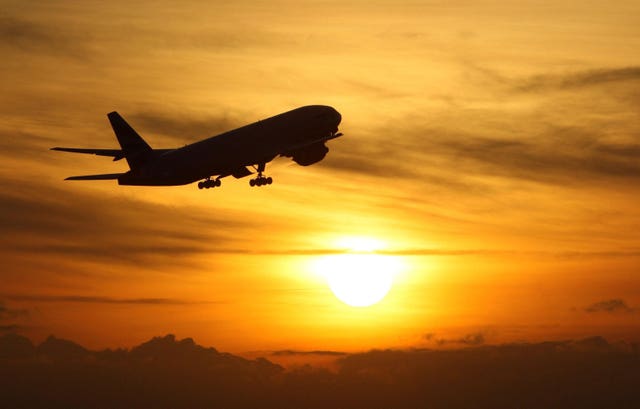New cheaper, faster Covid test could be used at airports, say researchers
An internal review of the pricing and standards of service from test providers is ongoing.

A new potentially cheaper and quicker Covid test could be rolled out at airports in as little as three months, researchers have said.
The development, from scientists at the University of Birmingham, comes amid ongoing controversy about the expense of tests required for travellers coming to the UK.
PCR tests typically cost around £65 but some private clinics are charging around £200.
Health Secretary Sajid Javid has acknowledged that the cost of PCR testing can be “a barrier” to people wanting to travel and said consumers and families need to be protected from “exploitative practices”.
An internal review of the pricing and standards of service from test providers was announced at the weekend.
On Friday, the Department of Health said the cost of NHS Test and Trace tests for international arrivals would be reduced – going down from £88 to £68 for travellers coming from green list countries, or those arriving from amber list countries who are fully vaccinated.
The cost for people arriving from amber list countries who are not double jabbed was reduced from £170 to £136 for two tests.
Researchers at the University of Birmingham said they have developed a test that is as sensitive as a PCR test but can give results in just a few minutes without the need for a laboratory.
One of those behind the research said it would be “ideally suited” to airports and could be rolled out in three to six months with commercial backing.
Their test, using the exponential amplification reaction (EXPAR) method, can detect results in less than 10 minutes, even for low levels of virus, they said.
Tim Dafforn, professor of biotechnology at the university’s School of Biosciences, said: “An ideal test would be one that is both sufficiently sensitive and speedy – our test, called RTF-EXPAR, achieves this goal.”
He added: “The simplicity and speed of this new test means that it is ideally suited to environments where a rapid answer is required close to need, like airports and entertainment venues.

“The test works with existing instrumentation, meaning that it could conceivably be deployed in these areas in three to six months with some commercial backing.”
At low levels of virus, results were detected in around 8.75 minutes, while at high concentrations the detection time was just 3.08 minutes, the researchers said.
Professor Andrew Beggs, from the Institute of Cancer and Genomic Sciences at the university, who also worked on the study published in PNAS, said their test should be “much cheaper” than laboratory-based tests and added that they would like to see it rolled out “as soon as possible”.
He said: “The analysis showed RTF-EXPAR’s sensitivity is equivalent to quantitative PCR testing, with a positive predictive value of 89%, and a negative predictive value of 93%.”
The full results will be published “in the near future”, he said.
Prof Beggs added: “The university has filed a patent application and is talking to commercial partners who would bring the test to market. We’d like to see it rolled out as soon as possible.
“The test is suitable for near-patient testing, so should be much cheaper than laboratory-based tests”.





